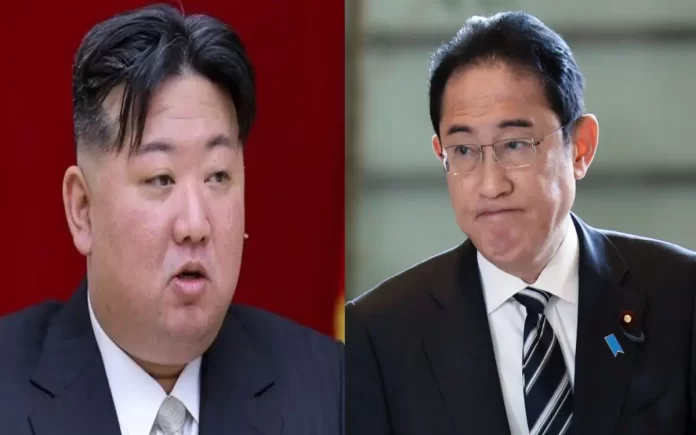Seoul: North Korea made an announcement on Monday indicating that Japanese Prime Minister Fumio Kishida had expressed willingness to meet with North Korean leader Kim Jong Un “as soon as possible”. However, the prospects for their first summit in approximately two decades hinge on Tokyo’s approach to North Korea’s weapons program and past abductions of Japanese citizens.
During a parliamentary session, Prime Minister Kishida emphasized the significance of addressing the abduction issue, a longstanding obstacle in bilateral relations, and stated that his government had been exploring various avenues for a summit with Kim.
In response, Kim Yo Jong, sister of Kim Jong Un and a senior North Korean official, revealed that Kishida had recently communicated his desire for a face-to-face meeting through unspecified channels. However, she cautioned that progress in North Korea-Japan relations depended on Japan’s handling of the abduction issue and its refraining from interference in North Korea’s defense activities.
Read More: Myanmar’s Next Electoral Path Uncertain, Junta Chief Asserts
Kim Yo Jong emphasized the need for Japan to make strategic decisions aligned with its broader interests to foster regional peace and stability. She underscored that mere summit talks could not resolve deep-seated distrust and misunderstandings between the two nations.
This statement echoes similar sentiments expressed in February, where North Korea expressed openness to improving ties with Japan under certain conditions. However, Pyongyang reiterated its stance that progress could only occur if Japan refrained from challenging North Korea’s right to self-defense and addressing the abduction issue.
Analysts suggest that North Korea’s outreach to Japan may be aimed at undermining the trilateral security partnership between Tokyo, Seoul, and Washington, while Prime Minister Kishida may view progress on the abduction issue as a means to boost his domestic approval ratings.
Read More: Eyewitnesses Recount Horror of Moscow Concert Attack
The ongoing nuclear and missile advancements by North Korea present a significant security concern not only for Japan but also for South Korea and the United States. In response, the three countries have intensified trilateral training exercises since 2022. Japan and South Korea, both key U.S. allies, collectively host approximately 80,000 American troops in the region.
Diplomatic relations between North Korea and Japan have long been strained, characterized by disputes over North Korea’s nuclear program, the abduction issue, and Japan’s colonial history in Korea. The acknowledgment of abductions in a 2002 summit marked a rare moment of concession by North Korea, but subsequent progress has been limited.
Read More: Romanian Agency Embraces AI to Facilitate EU Fund Access for Farmers
The cancellation of a scheduled World Cup qualifier between North Korea and Japan further underscores the complexities in their relationship. Amidst an election year in the United States and South Korea, there are concerns that North Korea may escalate tensions and conduct additional weapons tests.
While analysts doubt North Korea’s readiness for conflict, South Korean officials have raised concerns about potential provocations along border regions. As tensions persist, the Korean Peninsula remains on alert for further developments.



